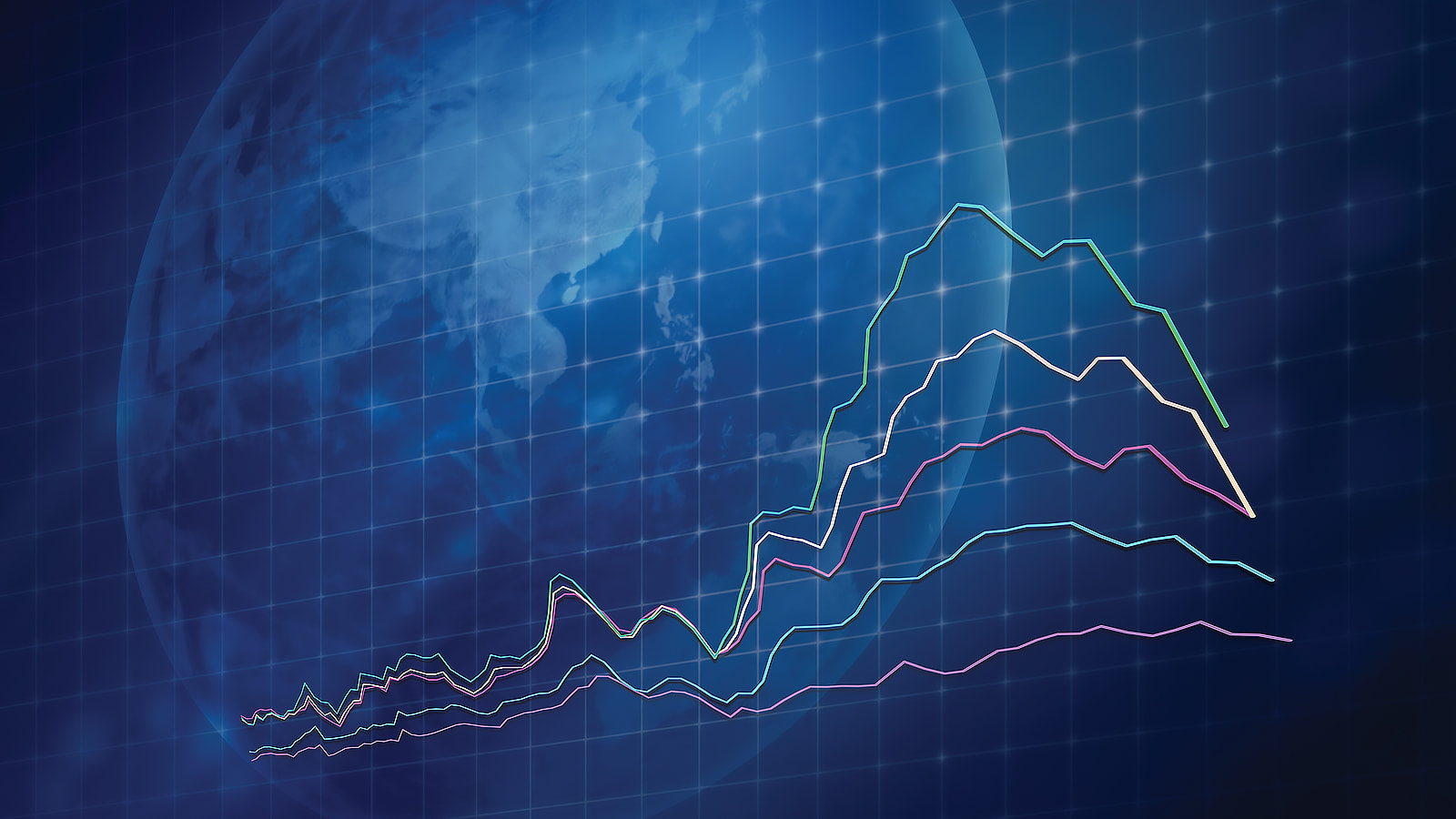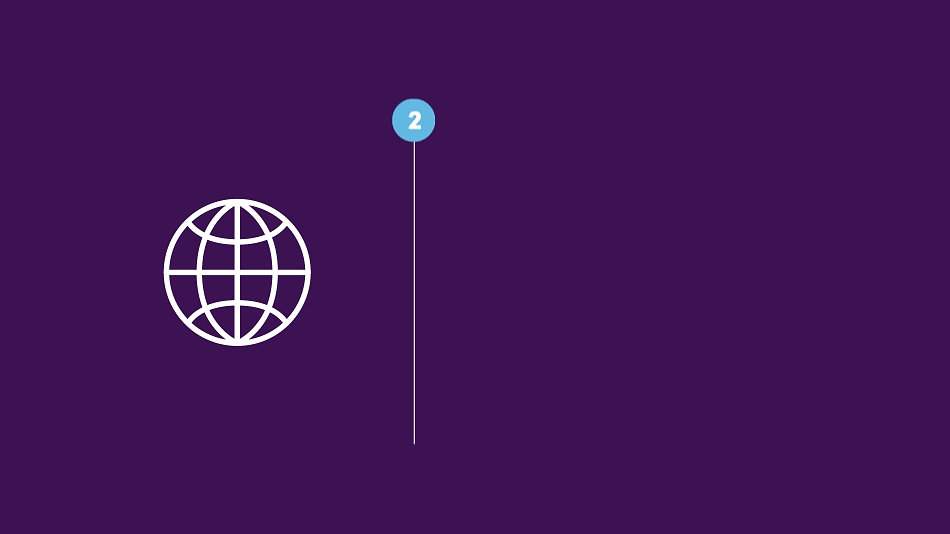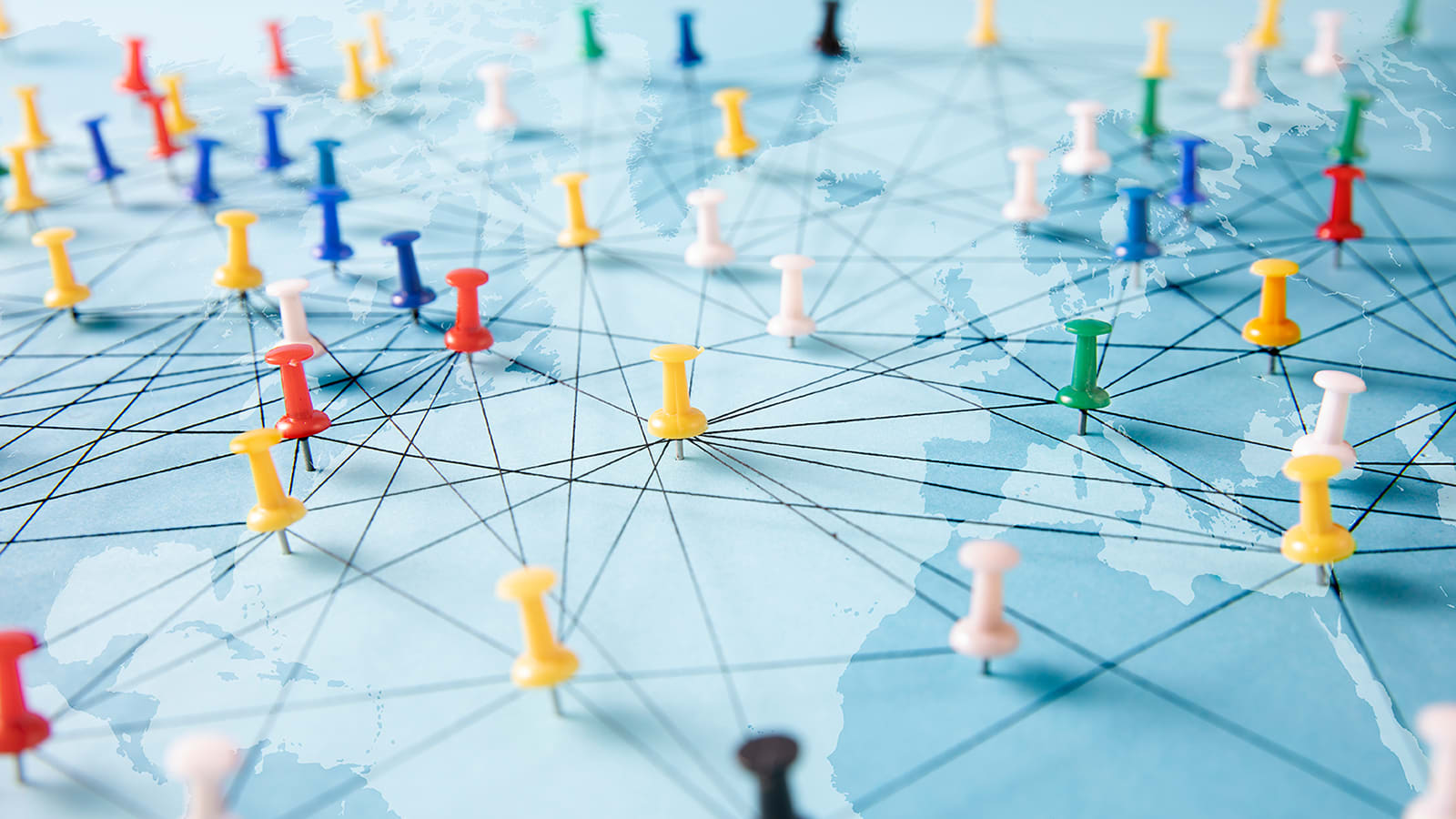Temasek developed its T2030 strategy in 2019 as its compass in a complex world. This blueprint emphasises agility and adaptability to thrive in a fast-changing landscape. It also aims to anticipate emerging trends with clear thinking and judgement.
“We live in a world characterised by volatility, uncertainty, complexity and ambiguity, and Temasek’s strategy reflects the importance of staying agile and adaptable to build a resilient, forward-looking portfolio,” said Ms Png Chin Yee, chief financial officer at Temasek. “Our T2030 strategy is a 10-year road map that guides our strategic planning, capability-building and institutional development initiatives to help us deliver sustainable value over the long term.”
As part of its T2030 strategy, Temasek identified six top-of-mind issues that pose current and future challenges.
In 30 seconds, see how Temasek’s T2030 strategy tackles six top-of-mind global challenges – with the aim of fostering resilience and sustainable returns over the long term.
1. ELEVATED PRICES, RESTRICTIVE MACRO POLICY, LOWER GROWTH: UNDERSTANDING THE FINANCIAL LANDSCAPE
Challenge: While inflation has fallen from its peak in 2022, interest rates and the cost of capital are expected to stay elevated in the near term relative to the past decade. Accordingly, macroeconomic policies remain largely restrictive compared to before 2021, which, in turn, raises the risk of lower growth, increased business costs and market volatility.

Approach: Temasek is building a diversified and forward-looking investment portfolio that can withstand economic shocks and market volatility. This portfolio has two components: A long-term resilient component that can provide stable and sustainable returns, or liquidity in the form of dividend income and distributions; and a shorter-term, dynamic component, where capital is recycled for investing in higher-growth opportunities for higher returns.
“In doing so, we want to capitalise on growth opportunities with the potential for sustainable returns above our risk-adjusted cost of capital over the long term,” said Ms Png. “For that, we must do three things. Firstly, maintain a very strong balance sheet. Secondly, protect the core of our portfolio by supporting the strategies of our portfolio companies and being an enabler for their success, and lastly, position our portfolio for growth.”


2. GEOPOLITICAL EVENTS & DECOUPLING IN A POST-COVID WORLD: STEERING THROUGH UNCERTAIN WATERS
Challenge: Shifting geopolitical dynamics can significantly impact international investments. The past decade has seen heightened tensions due to geopolitical conflicts, rivalry among the major powers, and supply chains decoupling in a post COVID-19 world.

Approach: Temasek incorporates strategic geopolitical risk assessments in its investment decisions – ensuring a pragmatic approach towards international relations. Its international policy and governance teams – located in Beijing, Brussels, Singapore and Washington DC – actively monitor geopolitical risks and consider how policy changes in key markets might affect its activities. Temasek is currently tracking the trend of decoupling and de-risking, which may disrupt global supply chains.
“While these trends represent obvious risks, we remain mindful that there are also opportunities as countries start investing in alternative supply chains and establishing alternative importers in a bid to achieve domestic and regional supply chain security,” Ms Png explained.
3. TRADE AND INVESTMENT RESTRICTIONS: MANAGING REGULATORY REALITIES
Challenge: The trade and investment regulatory environment has grown more complex as more countries adopt measures to protect national assets and critical industries. This trend is characterised by tighter trade and investment restrictions, heightened regulatory scrutiny, and greater enforcement actions. The International Monetary Fund estimates that trade restrictions will lead to global output losses of close to 2 per cent.

Approach: Temasek complies with legal and regulatory obligations across all jurisdictions it operates or invests in. The company’s legal and regulatory department ensures that policies, processes and systems align with prevailing laws, and keeps abreast of regulatory developments – ensuring compliance with trade and investment, merger control, and export control regimes.
Furthermore, constructing a geographically diversified portfolio with companies that have access to large domestic markets helps to mitigate some of the risks associated with trade and investment restrictions.
“As a global investor headquartered in Singapore, Temasek’s portfolio is diversified across geographies but remains anchored in Asia,” noted Ms Png. “This reduces Temasek’s reliance on specific markets. At the same time, we invest in companies with strong domestic demand as this can minimise the impact of trade and investment restrictions on their operations.”
4. SUSTAINABILITY AND CLIMATE CHANGE: AIMING FOR NET ZERO
Challenge: The transition to a net-zero world has faced setbacks due to concerns over energy security and affordability, which are partly due to the impact of the Russia-Ukraine war. This has momentarily slowed down decarbonisation efforts, even as the repercussions of climate change on economies and societies intensify.

Approach: Sustainability is at the core of everything that Temasek does. As a company, it has been carbon neutral since 2020. It has also set a target to reduce net carbon emissions from its portfolio to half its 2010 levels by 2030 – aiming to reach net zero by 2050.
To achieve its goals, Temasek actively participates in the acceleration of decarbonisation efforts globally. It invests in climate-aligned opportunities in the areas of food, water, waste, energy, materials, clean transportation and the built environment, while also enabling carbon-negative solutions and encouraging decarbonisation efforts in its portfolio companies. It is also catalysing financing to accelerate the adoption of green energy and decarbonisation solutions, uplifting communities through impact investing, and forming partnerships with like-minded organisations.
At the same time, Temasek focuses on integrating ESG (environmental, social and governance) criteria into its investment decision-making to ensure that investment opportunities align with its sustainability objectives.
5. CYBER RISKS: SAFEGUARDING IN THE TECHNOLOGICAL AGE
Challenge: The rising threat of cyberattacks poses a substantial risk to businesses and communities. Recent cybersecurity breaches serve as a timely reminder that all companies are vulnerable to such attacks, with advancements in technologies like 5G connectivity and artificial intelligence (AI) potentially exacerbating the risk.

Approach: Temasek employs a cyber-risk management framework to counter threats and bolster operational resilience. By tapping into the cybersecurity expertise within its portfolio, the company works with partners across its ecosystem to enhance cyber resilience.
To further its engagement on this, Temasek also shares best practices and exchanges insights with its portfolio companies on this topic.


6. INDUSTRY 4.0 AND WORKFORCE 4.0: PREPARING FOR THE FUTURE
Challenge: Traditional operating models are being revolutionised by the emergence of Industry 4.0 – characterised by increasing automation, the employment of smart machines and the advent of human-led AI – and Workforce 4.0, which refers to a workforce that thrives in a digitally driven environment. Although Industry 4.0 has boosted economic productivity, it has also led to social challenges such as job displacements and rising inequality.

Approach: Temasek focuses on organisational and talent development to grow its people, capabilities and teams for the future. Within the organisation, Temasek seeks to equip its people with diverse skill sets and competencies to navigate a complex world.
Externally, Temasek supports the upskilling of employees within its portfolio companies by working with them, their unions and their workforce to understand and anticipate shifts in their respective sectors. An initiative known as the Temasek Tripartite Conversations brings together relevant government agencies, trade unions and organisations to look at the changing roles and the necessary reskilling and upskilling needs of its workers to prepare them for the jobs of the future.
“Helping our portfolio companies better future-ready their workforce will ensure that they thrive and remain competitive over the long term,” said Ms Png.














